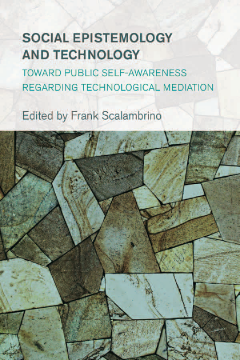
Additional Information
Book Details
Abstract
How has technology changed what it means to be human and to be a member of a human society? How has technology changed the way we acquire knowledge of the world we inhabit? In light of these changes and the direction we are moving, how should the pursuit of knowledge be organized? Social Epistemology and Technology provides insights into such questions relating to public self-awareness regarding technology.
The concerns addressed in this book apply to a large and diverse audience including, but not limited to, those interested in social epistemology, technology, cultural studies, trans-humanism, augmented subjectivity, futurology, human sciences, social sciences, political sciences, communication, psychology, science and technology studies, and philosophy. This is the first book of its kind to focus solely on technology and its socially specific epistemological themes. It offers insight into public self-awareness regarding technology by providing an understanding of persons in relation to the technological changes that have occurred, and continue to occur, across the societies they people.
An important contribution to the field of applied epistemology.
David Coady, Senior Lecturer in Philosophy at the University of Tasmania
Social Epistemology and Technology offers a crucial reflection on what makes us human and how contemporary societies are organizing that knowledge in new and powerful ways. This provocative collection allows readers to consider more deeply the ways we think, share, and work today. While some conclusions are chilling, their implications cannot be ignored.
Chris J. Richardson, Assistant Professor of Communication Studies at Young Harris College
| Frank Scalambrino is Senior Lecturer at the University of Akron, Ohio’s Polytechnic University. |
